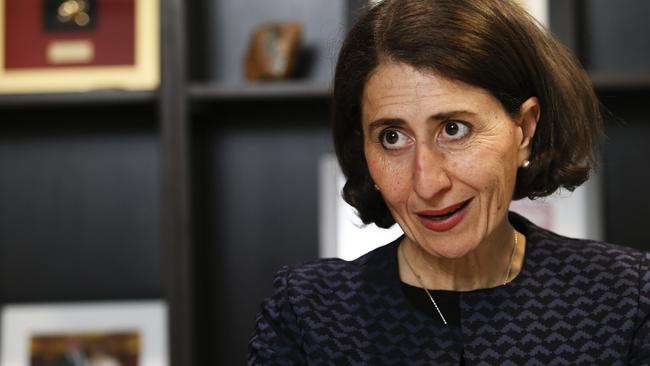Budget 2016: brickbats north and south from lands ‘Scott forgot’
The budget has been attacked by Victoria and Queensland, both claiming to be the state that Scott Morrison forgot.

The federal budget has been attacked by the Victorian and Queensland governments, both of them claiming to be the state Scott Morrison forgot, backed by perceived infrastructure funding inequities.
While the budget drew praise yesterday from NSW’s Coalition government for providing asset recycling payments, Treasurer Gladys Berejiklian maintained her pressure on the commonwealth to fund the last two years of the Gonski education funding package.
South Australian Treasurer Tom Koutsantonis said the budget lacked a co-investment package for troubled Whyalla steelmaker Arrium, but that small-business tax cuts were good news.
“Business tax cuts — they’re welcome. We’re a small-business state and, quite frankly, we need all the help we can get,’’ he said.
Western Australian Premier Colin Barnett said the business tax cuts would be of “immense benefit” for his state and praised the commonwealth for a “conservative, sensible budget” that reduced deficits.
But Victorian Treasurer Tim Pallas said the budget was “underwhelming” and a snub for Victoria, and did nothing to boost the state’s paltry 9 per cent share of federal infrastructure funding.
“Victoria is yet again the state that the nation forgot under Malcolm Turnbull and Scott Morrison,” he said. “They have to demonstrate this is a government for the nation and not just for Sydney.”
Queensland Treasurer Curtis Pitt said the budget had ignored Queensland, with just $200 million for upgrading the Ipswich motorway the only significant infrastructure commitment. “This budget didn’t deliver a spark for Townsville which has been through the (Clive) Palmer ... mill with the collapse of the Queensland Nickel refinery,” Mr Pitt said.
He also accused the Turnbull government of trying to blackmail the states into asset sales.
“Tying infrastructure funding to ‘asset recycling’ is nothing short of political blackmail,” he said. “If this is an election budget, then the Prime Minister may not be planning on winning many seats north of the Tweed.”
Mr Koutsantonis said the budget did not advance infrastructure projects that were “needed now” to employ South Australians ahead of the start of naval shipbuilding projects. He said the budget left a “fiscal cliff” in education and health funding, and was disappointed Mr Turnbull was “not keeping the election promise (former prime minister Tony) Abbott made to be on a unity ticket with Labor on Gonski’’.
The budget was broadly welcomed as “extraordinarily responsible” by Northern Territory Treasurer Dave Tollner and won some support from Tasmanian Liberal Premier Will Hodgman, both of whom represent states will a high proportion of small businesses that will gain from tax cuts.
“Fundamentally this is a good budget for Tasmania; it’s a plan for economic growth, it supports small business and when you consider that Tasmania’s economy is fuelled by the small-business sector, then this is going to have a significant benefit,” Mr Hodgman said. “There are no nasty surprises, but this is indeed a strong plan for Tasmania’s economy.”
But although there was money for road upgrades and health services including specific dollars to target elective-surgery waiting lists, the budget did not match Labor’s commitment to provide the $150m co-contribution the Tasmanian government sought for a northern campus of the University of Tasmania.
Additional reporting: Meredith Booth, AAP


